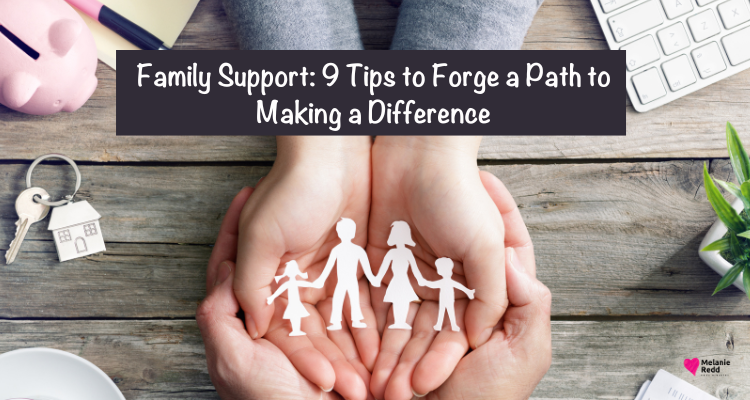Family Support: 9 Tips to Forge a Path to Making a Difference

A Future in Family Support: 9 Tips to Forge a Path to Making a Difference
Have you ever wanted a career where you can truly help others? Many individuals face challenges in their daily lives, from financial struggles to emotional distress. Professionals in family support roles work to guide and assist them, providing resources and solutions that can improve their well-being. If you are someone who enjoys helping people navigate difficulties, this could be a fulfilling career choice.
Starting in this field requires more than just good intentions. It takes education, skill development, and practical experience to be effective. This article explores essential tips that will help you build a strong foundation for a successful career in family support.
First… Understand the Scope of Family Support Work
Before entering this field, it’s important to understand what family support professionals do. Their responsibilities range from counseling and case management to providing referrals for services like housing assistance, mental health care, and financial aid.
Also, they work in schools, government agencies, and nonprofit organizations, assisting individuals and families who need help overcoming personal and social challenges.
Since this career involves working with people from diverse backgrounds, professionals must develop strong interpersonal skills and an ability to navigate sensitive situations with care and professionalism. Knowing the demands of the job will help you prepare for success in the field.
Second… Pursue Relevant Education and Accreditation
Having the right educational background is crucial for a career in family support. Many roles require specialized human services, psychology, or social work training. Enrolling in structured academic programs provides the knowledge needed to handle complex cases and support individuals effectively.
For instance, pursuing school psychology programs online accredited by NASP ensures that students receive high-quality education aligned with industry standards. These programs focus on child development, behavioral interventions, and crisis management, equipping graduates with the expertise to work with children and families in educational and counseling settings.
Third… Develop Essential Skills
A career in this field requires strong communication and problem-solving skills. Active listening is essential to understanding the needs of individuals seeking support. Empathy helps build trust, while clear communication allows professionals to provide guidance and information effectively.
Additionally, conflict resolution skills are valuable in helping families navigate challenges. Professionals must also stay organized, as case management involves keeping track of various client needs, referrals, and progress reports. Developing these skills will ensure that you can provide effective and compassionate support.
Fourth… Gain Practical Experience
Theoretical knowledge alone is not enough—practical experience is equally important. Volunteering or interning at shelters, counseling centers, or community organizations helps build hands-on skills. These opportunities allow aspiring professionals to observe real-life cases, interact with clients, and understand the challenges of the job.
Hands-on experience also makes you a more attractive candidate for full-time roles. Many employers look for professionals with field experience who can step into positions with confidence and a solid understanding of the work.
Fifth… Build a Professional Network
Networking is a key part of career growth in any field, and family support work is no exception. Connecting with experienced professionals can provide mentorship, career guidance, and job opportunities. Attending industry conferences, joining professional associations, and participating in workshops can help you expand your network.
Engaging with others in the field also helps you stay informed about policy changes, new research, and best practices. Learning from those with experience can help you grow professionally and become more effective in your role.
Sixth… Stay Informed About Current Issues
The field of family support is constantly evolving. Policies, programs, and best practices change over time, so professionals must stay informed. Understanding the latest research and trends helps you provide accurate and up-to-date guidance to those in need. There are many ways to stay informed.
Reading industry-related articles, attending conferences, and joining online forums are great ways to keep up with changes. Continuous learning ensures that you remain knowledgeable about new resources, legal requirements, and social services that benefit the people you assist.
Seventh… Cultivate Cultural Competence
Working in family support means interacting with individuals from diverse backgrounds. Understanding different cultural perspectives and values is essential to providing effective and respectful assistance. People’s experiences are shaped by their traditions, beliefs, and social norms, which may influence how they seek help.
Developing cultural competence requires effort. Taking courses on diversity, engaging with different communities, and actively listening to people’s experiences can help professionals become more understanding and inclusive. Respecting cultural differences allows you to build trust and create a safe environment for those seeking support.
Eighth… Advocate for Families
Beyond helping individuals, professionals in this field can make a broader impact by advocating for better services and policies. Many families face systemic challenges, such as a lack of access to healthcare, education, or financial support. Raising awareness and pushing for policy changes can improve the resources available to those in need.
Advocacy can take many forms. Writing to policymakers, participating in community initiatives, or joining organizations that promote social change are all ways to contribute. Even small actions, like educating others on available services, can make a difference in people’s lives. Being an advocate helps create a fairer system for those who rely on support services.
Ninth… Reflect and Seek Feedback
No matter how much experience you gain, there is always room for growth. Taking time to reflect on your work helps you identify areas for improvement. Asking for feedback from supervisors, colleagues, or even clients can provide valuable insights into how you can be more effective.
Professionals who actively seek feedback and learn from their experiences improve their work. Whether it’s improving communication skills, learning new intervention strategies, or refining case management techniques, reflection and feedback help ensure long-term success in the field.
Closing Thoughts… Family Support: 9 Tips to Forge a Path to Making a Difference
A career in family support is both rewarding and impactful. It requires dedication, education, practical experience, and ongoing self-improvement.
Whether you’re assisting with immediate challenges, advocating for better policies, or providing long-term guidance, your work can shape a better future for those in need. If you’re passionate about helping others, taking these steps will lead you to a meaningful and fulfilling career.
Were you encouraged by what you read?
Then, would you share this article with a friend, co-worker, or family member?
Or, maybe you can send it to a friend or family member?
This blog occasionally uses affiliate links and may contain affiliate links.
Additionally, Melanie Redd is a participant in the Amazon Services LLC Associates Program.
This is an affiliate advertising program designed to provide a means for sites to earn advertising fees. These are earned by advertising and linking to amazon.com.
Also, for more on my disclosure policy, click HERE.
© Melanie Redd and Hope Ministry, 2025. Unauthorized use and/or duplication of this material without express and written permission from this blog’s author and/or owner is strictly prohibited.
Further, excerpts and links may be used, provided that full and clear credit is given to Melanie Redd and Hope Ministry.
Please give appropriate and specific directions to the original content.




0 Comments